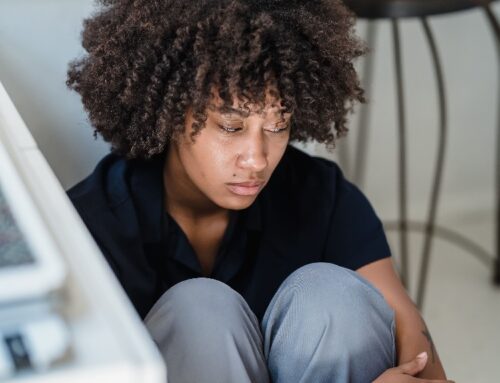 Getting officially diagnosed with depression can bring on a whole new wave of emotions and thoughts. If you received a diagnosis, you’ve probably been struggling with symptoms for a while without knowing what they really meant.
Getting officially diagnosed with depression can bring on a whole new wave of emotions and thoughts. If you received a diagnosis, you’ve probably been struggling with symptoms for a while without knowing what they really meant.
Still, hearing those words can make things feel “real”, and cause you to become overwhelmed by your diagnosis.
You might wonder “what now”? It’s not uncommon to wonder if you’re flawed somehow, or if there is something wrong with you.
The answer is a resounding no. Depression is one of the most common mental health conditions across the globe. Getting a diagnosis is the first step toward treatment and learning how to manage your symptoms.
Take comfort in knowing you don’t have to cope on your own. Keep some of these ideas in mind as you move forward on your mental health journey, so you can manage your depression as quickly as possible.
Find Your Support System
 One of the best things you can do after a depression diagnosis is lean on family and friends for support. You will need to have a strong support system to help you through the tougher moments when you’re really struggling.
One of the best things you can do after a depression diagnosis is lean on family and friends for support. You will need to have a strong support system to help you through the tougher moments when you’re really struggling.
The unique thing about depression is that everyone needs support in different ways. For some, that might include frequent calls from family members to check in. Others just need a bit of patience.
Be clear with your family and friends about what kind of support you need, and they’ll have an easier time providing it.
Stay Active
One of the common symptoms of depression is fatigue. You might also have trouble sleeping, or changes in your eating habits. It can be tempting, at times, to do nothing but lay in bed all day.
Unfortunately, that can do more harm than good. The symptoms of depression are often cyclical—the more you give in to certain ones, the worse your depression can become.
So, as difficult as it might be at first, make a commitment to take care of yourself. A great way to do that is by staying physically active.
That doesn’t mean you have to run a marathon. Something as simple as taking a walk around your neighborhood each morning can make a big difference. It will give you something to look forward to, help you build a routine, and promote your overall wellness. Exercising is a great way to boost endorphins in your brain and reduce stress while promoting feelings of happiness. If you can exercise outside, you’ll enjoy even more mood-boosting benefits.
 Practicing self-care in other ways is just as important. Find something every day that benefits your overall well-being. It could include cooking a favorite meal, journaling, or taking a long bath. Self-care isn’t selfish, and it should be a priority when you’re struggling with your mental health.
Practicing self-care in other ways is just as important. Find something every day that benefits your overall well-being. It could include cooking a favorite meal, journaling, or taking a long bath. Self-care isn’t selfish, and it should be a priority when you’re struggling with your mental health.
Seek Out Treatment
Depression isn’t something that typically goes away on its own. That’s especially true if you’re feeling overwhelmed by it after receiving a diagnosis.
Seeking the help of a mental health professional is often the best way to manage your depression and take back your life. A therapist can help you determine what the “root cause” of your depression is. It’s not always easy to peel back those layers, but it’s necessary to work through your struggles.
Once you’re able to do that with a professional, you can develop the skills needed to manage your symptoms and fight back against negative thoughts.
If you were recently diagnosed with depression, you can out more about depression counseling here. Then feel free to contact me for a complimentary consultation call. Together, we can work through your feelings about the diagnosis, itself, and how you can take care of your mental health as you move forward.





